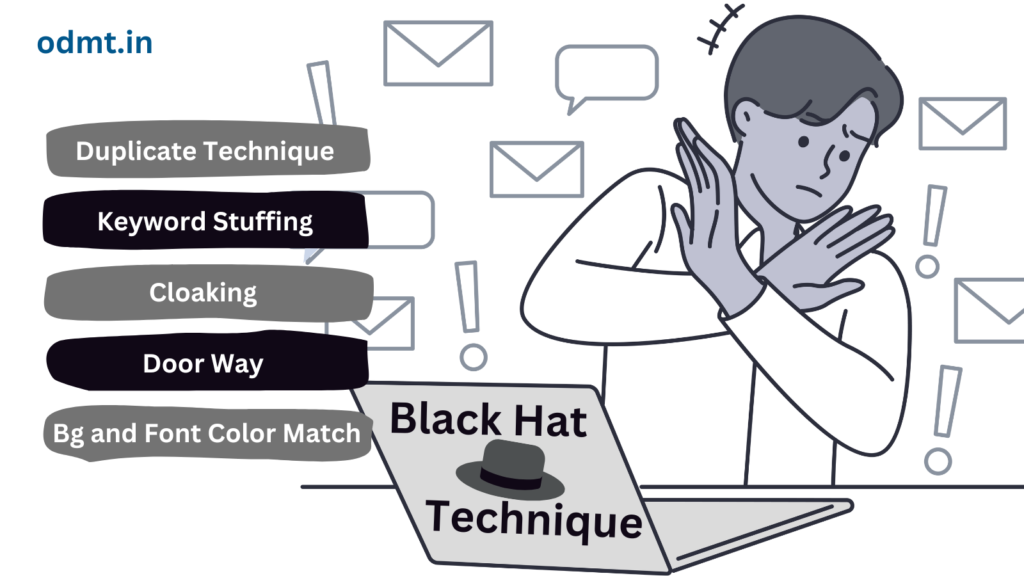BLACK HAT SEO:
Black Hat SEO refers to unethical and manipulative techniques used to improve a website’s search engine ranking by violating search engine guidelines (such as Google’s Webmaster Guidelines). These tactics focus on exploiting weaknesses in search algorithms rather than providing genuine value to users. While Black Hat SEO may provide short-term ranking boosts, it often leads to penalties, including ranking drops or deindexing from search engines.
Common Black Hat SEO Techniques
- Keyword Stuffing – Overloading web pages with excessive keywords in an unnatural way to manipulate rankings.
- Cloaking – Showing different content to search engines than what is displayed to users.
- Hidden Text & Links – Using invisible text or links (e.g., white text on a white background) to trick search engines.
- Duplicate Content – Copying content from other websites to manipulate search rankings.
- Link Farms & Paid Links – Using networks of low-quality websites to generate artificial backlinks.
- Doorway Pages – Creating low-quality pages stuffed with keywords that redirect users to another site.
- Spam Comments – Posting irrelevant comments with links to a website on blogs and forums.
- Clickbait & Misleading Redirects – Tricking users into clicking on a link that leads to unrelated content.
- PBNs (Private Blog Networks) – A network of websites created solely to provide backlinks to a main website.
- Negative SEO – Using unethical tactics (e.g., building spammy backlinks) to harm a competitor’s website ranking.
Risks of Black Hat SEO
- Google Penalties – Search engines can penalize or permanently ban a site.
- Loss of Credibility – Users may lose trust in your website.
- Short-Term Gains, Long-Term Damage – Quick results can lead to long-term ranking drops.
❌ Avoid Black Hat SEO and focus on White Hat SEO techniques for sustainable growth and long-term success. 🚀

WRAPPING UP:
Remember that black hat SEO violates search engine guidelines and can lead to penalties, loss of rankings, and even removal from search engine indexes. It’s essential to focus on ethical and sustainable practices (white hat SEO) for long-term success.
Black hat SEO refers to a set of practices that are used to increases a site or page’s rank in search engines through means that violate the search engine’s terms of services.
